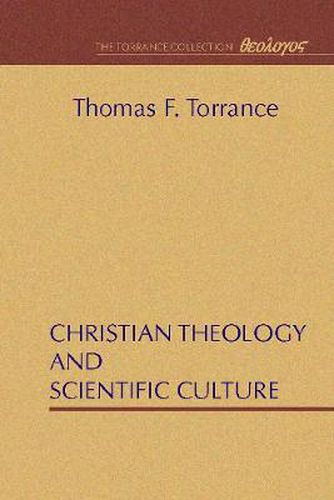Readings Newsletter
Become a Readings Member to make your shopping experience even easier.
Sign in or sign up for free!
You’re not far away from qualifying for FREE standard shipping within Australia
You’ve qualified for FREE standard shipping within Australia
The cart is loading…






How do we react to the claim that physics must now be regarded as one of the liberal arts, for in its description of the universe it sets the stage for the drama of human life? If modern science has now become the dominant culture, how does Christianity look within it? What difference does the Christian idea of the contingence of nature make to science today? What difference does it make for Christian thought and culture to move away from the old idea of the world as a closed mechanical system of cause and effect into the new idea of the world as an open dynamic system configured by the behavior of light, the fastest messenger in the universe? These are some of the questions discussed in the light of James Clerk Maxwell’s discoveries of the mathematical properties of light, and of Albert Einstein’s generalization of the new understanding of light for a radically new and exciting view of nature that has made space travel possible and enabled us to trace the expansion of the universe back to conditions near its beginning. This is not a defensive book about science and religion in the usual vein. It is concerned rather with the deep mutual relation and respect of Christian and scientific thought for each other, and shows how this relationship throws new light upon basic Christian doctrines. This volume also warns against the dangers of a reactionary retreat from the rigors of scientific thought into fuzzy mythological interpretations of the incarnation, and calls for a deeper appreciation of the Nicene Creed upon which all Christendom rests.
$9.00 standard shipping within Australia
FREE standard shipping within Australia for orders over $100.00
Express & International shipping calculated at checkout
How do we react to the claim that physics must now be regarded as one of the liberal arts, for in its description of the universe it sets the stage for the drama of human life? If modern science has now become the dominant culture, how does Christianity look within it? What difference does the Christian idea of the contingence of nature make to science today? What difference does it make for Christian thought and culture to move away from the old idea of the world as a closed mechanical system of cause and effect into the new idea of the world as an open dynamic system configured by the behavior of light, the fastest messenger in the universe? These are some of the questions discussed in the light of James Clerk Maxwell’s discoveries of the mathematical properties of light, and of Albert Einstein’s generalization of the new understanding of light for a radically new and exciting view of nature that has made space travel possible and enabled us to trace the expansion of the universe back to conditions near its beginning. This is not a defensive book about science and religion in the usual vein. It is concerned rather with the deep mutual relation and respect of Christian and scientific thought for each other, and shows how this relationship throws new light upon basic Christian doctrines. This volume also warns against the dangers of a reactionary retreat from the rigors of scientific thought into fuzzy mythological interpretations of the incarnation, and calls for a deeper appreciation of the Nicene Creed upon which all Christendom rests.